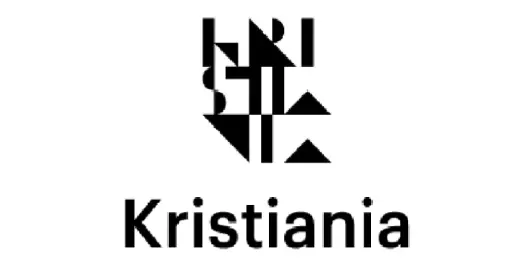Ledig stilling på Universitetet i Oslo
Blindern og Urbygningen (Foto: Wikimedia og Colourbox)
PhD Research Fellowship to examine different groups of war children in the European context
Deadline: 24.05.2021
Universitetet i Oslo
The University of Oslo is Norway’s oldest and highest ranked educational and research institution, with 28 000 students and 7000 employees. With its broad range of academic disciplines and internationally recognised research communities, UiO is an important contributor to society.
Centre for Gender Research (STK) at the University of Oslo (UiO) is the largest centre in Norway for women’s studies and gender research and among the leading women’s and gender studies institutes of its kind in the Nordic region. STK is a stand-alone research unit within UiO that cooperates closely with other faculties, departments and institutes at UiO.
Job description
Scholars with an interdisciplinary orientation are invited to apply for a position for a Research Fellowship as a PhD Candidate at the Centre for Gender Research at the University of Oslo. The successful applicant will work on the European Research Council Consolidator grant project ‘Innocent Children or Security Threats? European Children Born of War (EuroWARCHILD)”. It is preferable with candidates with a background in social science studies with knowledge of and experience with qualitative interview analyses. However, scholars in law and/or humanities may also be considered depending on the fit of the project description with the aims and methodologies of EuroWARCHILD project. The appointment is for 3 years.
EuroWARCHILD will be the first project to examine different groups of war children in the European context; namely across different conflicts, security settings and generations. The project will present findings, which have the potential to have direct impact on policy concerns in many European countries today. This project, therefore, aims to contribute to creating a better future for a new generation of war children in Europe by disseminating findings to scholarly and policy audiences alike. EuroWARCHLD aims to do so by asking one overarching question, namely how does a child born of war become a security concern, and what does it entail for the child who does? The primary objective is to provide a significant contribution to the development of both theoretical and empirical knowledge about children born of war: understanding and theorizing resistance to, and adoption of security discourses, surrounding these groups. The geographical and empirical focus is Europe because we have an opportunity to study different age groups of war children. The secondary objective of this research is to contribute to policy development and increase global attention, and policy responses, to children born of war, in Europe and beyond. To this end, the EuroWARCHILD project has three distinct objectives. First, to develop a theory of securitized child identities. Second, to document how conceptualizations of security frame mobilization for social, legal and political recognition for children born of war across European contexts and generations. Third, to analyze how children born of war narrate life histories along a security continuum and its impact on identity formation across European contexts and generations. Qualitative empirical data collection will include 3 groups of participants who will be approached for interviews: children fathered by German soldiers in Norway and Denmark during World War II, children fathered by Red Army soldiers with German mothers in Germany during and after WW II, children conceived through conflict-related sexual violence during the war in Bosnia and Herzegovina 1992 -1995.
The PhD scholar will be part of the sub-study of children fathered by German soldiers in Norway and Denmark during WW II. This entails gathering new interview data, as well as gathering and analyzing core documents about these groups of war children. Further, the PhD scholar is expected to take part in theory development and inter-generational analyses in the overarching project with the rest of the project team. The PhD study can be framed in different ways, but must include the elements outlined in the study of children fathered by German soldiers in Norway and Denmark during WW II, as a minimum.
The EuroWARCHILD is lead by Professor Inger Skjelsbæk and runs from 2021 to 2026.
In assessing the applications, emphasis will be placed on the quality of the research proposal, previous publications, method and theory skills. Further, it is also important that the candidate can prove good and quality assured administrative and communicative skills with policy and practice communities on national and international levels, as well as project management. The candidate must have excellent oral and written English, and at least one Scandinavian language, skills.
More about the position
The fellowship period is 3 years and devoted to carrying out a project in close connection with the research questions and project description of the EuroWARCHILD project.
The research fellow must be enrolled in a suitable PhD program at the University of Oslo and is expected to complete the project within the set fellowship period. The main purpose of the fellowship is research training leading to the successful completion of a PhD degree.
Qualification requirements
- Applicants must hold a Master’s degree (120 ECTS) in a relevant field, minimum grade B (ECTS grading scale) or equivalent. The Master’s degree must include a thesis of at least 30 ECTS
- Fluent oral and written communication skills in English and a Scandinavian language
The following qualifications will count in the assessment of the applicants:
- Personal suitability and ability to cooperate, as well as general motivation for the project
- An interest in disseminating project results to academic and policy/practice communities
- Project management experience
- In evaluating applications, the research outline will be given more weight than other disciplinary and general qualifications.
We offer
- Salary NOK 482 200 – 516 400 per annum depending on qualifications in a position as PhD Research fellow, (position code 1017)
- A friendly and inclusive academic working environment
- Attractive welfare benefits and a generous pension agreement, in addition to Oslo’s family-friendly environment with its rich opportunities for culture and outdoor activities
How to apply
The application must include
- Cover letter (max 2 pages, including statement of motivation, summarizing research interests, and how the applicant will contribute to the project/Centre)
- A research proposal (maximum 3000 words including references). The proposal should clarify the main research questions, the theoretical approach, and research design/methodology, how the research contributes to the existing literature, a time line and how the research plan fits with the EuroWARCHILD project.
- CV (summarizing education, positions and academic work)
- Copy of the Master’s dissertation (in English or Scandinavian language)
- Copies of educational certificates (academic transcripts only) including
- List of reference persons: 2-3 references (name, relation to candidate, e-mail and phone number)
The application with attachments must be delivered in our electronic recruiting system, please follow the link: “Apply for this job”. Foreign applicants are advised to attach an explanation of their University's grading system. Please note that all documents should be in English (or a Scandinavian language).
We expect the whole evaluation process, from the application date to an offer is made, to take 12-16 weeks, depending on the number of applications. Expected starting month is September 2021 (or a mutually-agreed upon date).
Depending on the number of applicants, we may use a sorting committee before sending the applications to the Expert Committee for a full academic evaluation and ranking of the best qualified applicants. Interviews with the best qualified candidates will be arranged.
When evaluating the application, emphasis will be given to the project description and the applicant’s academic and personal prerequisites to carry out the project.
Formal regulations
The PhD thesis needs to be written in English.
Please see the guidelines and regulations for appointments to Research Fellowships at the University of Oslo.
No one can be appointed for more than one PhD Research Fellowship period at the University of Oslo.
According to the Norwegian Freedom of Information Act (Offentleglova) information about the applicant may be included in the public applicant list, also in cases where the applicant has requested non-disclosure.
The appointment may be shortened/given a more limited scope within the framework of the applicable guidelines on account of any previous employment in academic positions.
The University of Oslo has an agreement for all employees, aiming to secure rights to research results etc.
Inclusion and diversity are a strength. The University of Oslo has a personnel policy objective of achieving a balanced gender composition. We also want to have employees with diverse expertise, combinations of subjects, life experience and perspectives. We will make adjustments for employees who require this.
If there are qualified applicants with special needs, gaps in their CVs or immigrant backgrounds, we will invite at least one applicant in each of these groups to an interview.
Contact information
Apply for this job















